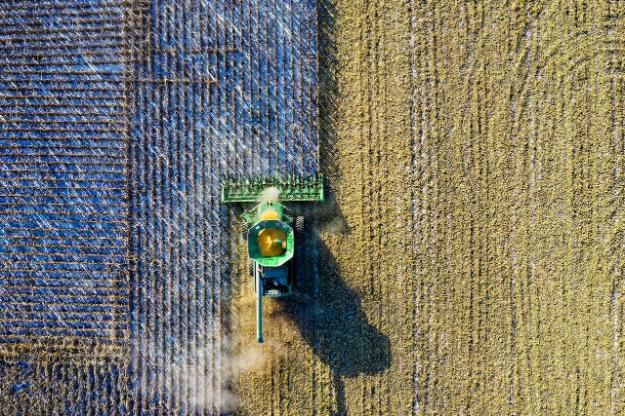The U.S. Department of Energy’s Bioenergy Technologies Office (BETO) has announced a substantial $29 million funding initiative aimed at advancing research, development, and demonstration of low-carbon-intensity energy crops. These crops are considered pivotal in accelerating the transition to a clean energy economy.
The funding, designated under the Regional Resource Hubs for Purpose-Grown Energy Crops opportunity announcement (FOA), seeks to establish a robust domestic supply chain of alternative carbon sources. This infrastructure is vital for the production of biofuels and bioproducts, essential components in decarbonizing the transportation and industrial sectors. Additionally, the initiative aims to drive innovation and growth within the U.S. agricultural industry.
A core objective of the FOA is to support DOE’s Sustainable Aviation Fuel (SAF) Grand Challenge, which targets the production of three billion gallons of SAF annually by 2030 and 35 billion gallons annually by 2050. This ambitious goal is set to meet 100% of the projected U.S. aviation fuel demand. The initiative also aligns with the DOE Clean Fuels & Products Shot™ initiative, launched in 2023, which focuses on reducing greenhouse gas emissions from the fuel and chemical industry by at least 85% by 2035.
Dr. Valerie Sarisky-Reed, Director of BETO, emphasized the importance of investing in a transition to an equitable bioeconomy. She highlighted the significance of ramping up energy crops like switchgrass, which not only provide a sustainable supply of domestic feedstocks but also drive innovation in clean fuel production, ultimately contributing to a reduction in greenhouse gas emissions.
See also: New Mexico Leads the Charge for Clean Energy with Bid for Regional Hydrogen Hub Funding
The FOA comprises various focus areas, including algae, herbaceous energy crops, intermediate energy crops, and short-rotation woody crops. These areas were identified through extensive research and development needs assessments, including the SAF Grand Challenge Roadmap and workshops conducted in fiscal year 2023.
Applicants selected for funding will join the newly established DOE Regional Biomass Resource Hub Initiative (RBRH), led by the Idaho National Laboratory (INL). The RBRH will facilitate collaboration among awardees, enabling the sharing of data, experimental plans, and collective achievement of funding objectives. Awardees will work in coordination with stakeholders such as national laboratories, universities, landowners, farmers, and policymakers to address regional challenges and mobilize resources effectively.
DOE intends to award two to five financial assistance awards under this FOA, lasting from four to 10 years. Concept papers are due by March 14, 2024, with the full application deadline set for June 13, 2024. Interested parties can access the full FOA on the EERE Exchange platform and find additional information on Grants.gov.
To encourage collaboration, BETO has compiled a Teaming Partner List, allowing organizations to explore partnerships to meet FOA goals effectively. The list includes diverse teams, including minority-serving institutions, workforce education providers, and tribal entities, to ensure a broad range of expertise and resources are available for successful project implementation.
See also: US Department of Energy Allocates $31 Million for Geothermal Innovation Projects
It’s worth noting that all applications selected for award negotiations will undergo a verification process led by an external third-party non-conflicted verification team. This process aims to ensure transparency and increase the likelihood of project success by analyzing key technical and economic metrics.
The Regional Biomass Resource Hub Initiative, spearheaded by Idaho National Laboratory researchers, aims to accelerate the sustainable mobilization of purpose-grown energy crops. By generating modeling tools, data, and guidelines, the RBRH seeks to support the development of market-driven regional strategies for feedstock supply chain development, further advancing clean fuels and products.

